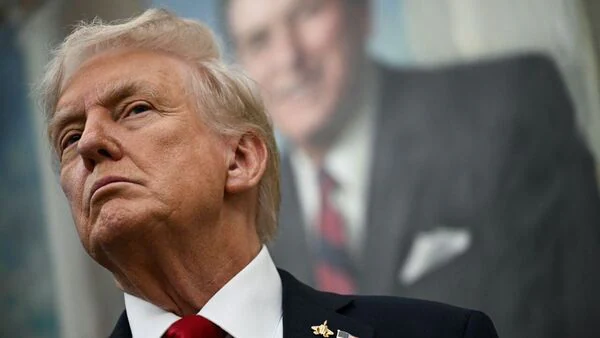
Trump To Sell Student Loans To Private Market? Here's What It Means For Borrowers
According to the news portal's report, officials from the federal government's Education and Treasury Departments are focused on selling high-performing portions of the government's massive portfolio of student debt owed by nearly 45 million US citizens.
This potential move highlights the Trump administration's efforts to reduce the size of student loan debt owed to the US government, as reflected in the yearly balance sheet.
The news report also highlighted that the move also aligns with the wider Republican efforts to scale back federal student loans and expand the operations to involve private sector contributions in the US economy.
“The Trump administration is committed to analysing all aspects of the federal student loan portfolio,” a senior Trump administration official told the news portal.“Unlike the previous administration, we are focused on ensuring the long-term health of the portfolio for the benefit of both students and taxpayers.”
The news report also states that the discussions on the topic have advanced to potentially involve external consulting firms or banks to analyse the student loan programmes and understand how the private sector values the parts of the loan portfolio.
Can Trump legally sell the loans?The US President Donald Trump's administration can legally sell the student loans, as federal law governing student loans states that the Department of Education is allowed to sell the debts after consultation with the Treasury Department.
However, the only way they can sell off the loans to, potentially, private sector operators, is when it would not cost any US taxpayers money.
According to a news report from the USA Today portal, this is not the first time the Trump administration has discussed a potential sale of loans. A similar conversation was carried out in 2019, during Trump's first run as the US President.
In an executive order in March 2025, Trump also hinted that the federal government could potentially close the federal Department of Education.
“The (department) is not a bank, and it must return bank functions to an entity equipped to serve America's students,” said Trump, cited in the news portal's report.
How does this affect borrowers?Although industry experts suggest that it is unclear how this move will be 'cost-free' for taxpayers, as any private sector operator would likely value the student loan portfolio at a lower rate than the federal government.
In most cases, when lenders sell their loans to mortgage companies, banks, or other financial institutions, to free up money which is tied to those debts, the borrowers usually never notice a change.
The only prominent change is that people will be sending money to a different company, rather than the federal government. The official terms and conditions, along with the loan tenure and interest rate, remain the same for borrowers.
However, the news portal, citing experts, also highlighted that in the case of federal student loans, the process can be different, as private companies cannot provide the protections that the US government would provide to borrowers.
Legal Disclaimer:
MENAFN provides the
information “as is” without warranty of any kind. We do not accept
any responsibility or liability for the accuracy, content, images,
videos, licenses, completeness, legality, or reliability of the information
contained in this article. If you have any complaints or copyright
issues related to this article, kindly contact the provider above.


















Comments
No comment